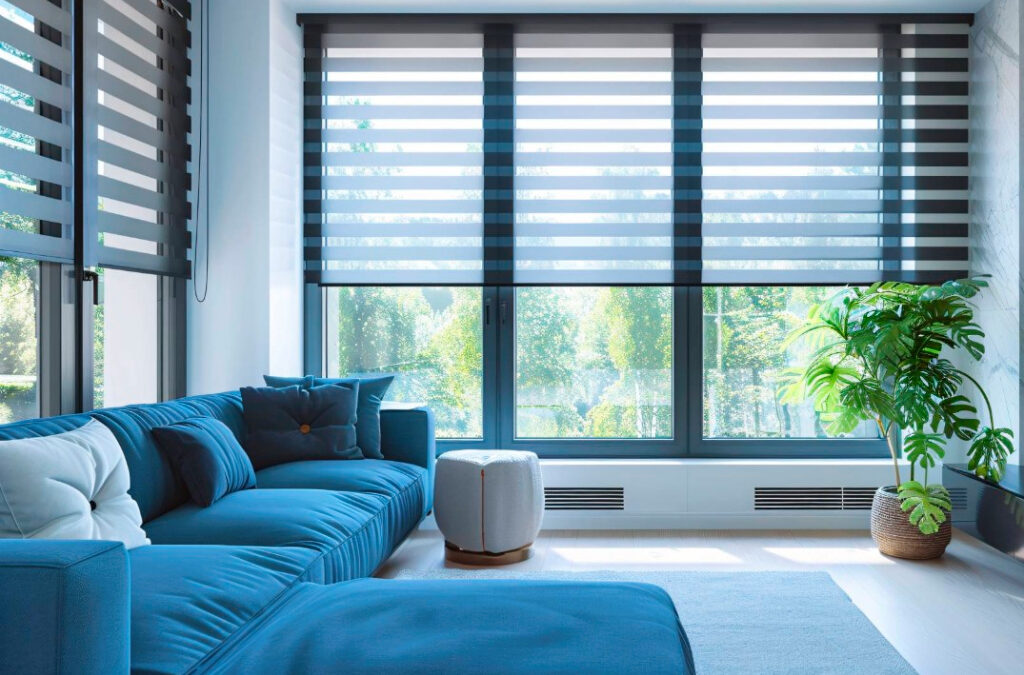Living in Orange Beach, Alabama, comes with the perks of beautiful coastlines and warm weather year-round. However, the high humidity levels can pose challenges for homeowners, especially when it comes to maintaining window blinds. Proper care and maintenance are essential to keep your blinds looking great and functioning well in this moist environment. In this guide, Orange Beach Blinds provides practical tips on how to maintain your blinds in the humid climate of Orange Beach.
Understanding the Effects of Humidity on Blinds
Humidity can affect different types of blinds in various ways:
- Warping: Wooden blinds may absorb moisture and warp or crack over time.
- Mold and Mildew Growth: Fabric blinds can become breeding grounds for mold and mildew if not properly cared for.
- Rusting: Metal components in blinds can rust due to prolonged exposure to moisture.
- Discoloration: Excess humidity can cause blinds to fade or discolor.
Understanding these potential issues is the first step in preventing them.
Choose the Right Materials for Humid Climates
Before focusing on maintenance, it’s crucial to select blinds made from materials that withstand high humidity.
Faux Wood Blinds
- Moisture Resistance: Unlike real wood, faux wood doesn’t absorb moisture easily.
- Durability: Resistant to warping and cracking.
- Aesthetic Appeal: Offers the classic look of wood without the drawbacks.
Aluminum Blinds
- Rust Resistance: Coated to prevent rusting.
- Lightweight and Durable: Easy to operate and long-lasting.
- Easy Maintenance: Simple to clean and maintain.
Vinyl and PVC Blinds
- Waterproof: Ideal for high-humidity areas.
- Cost-Effective: Affordable without sacrificing quality.
- Variety of Styles: Available in numerous colors and designs.
Choosing the right material can significantly reduce maintenance efforts.
Regular Cleaning is Key
Regular cleaning prevents the buildup of dust, mold, and mildew, which thrive in humid conditions.
Weekly Dusting
- Use a Microfiber Cloth: Gently wipe down each slat to remove dust.
- Feather Duster: An alternative for quick cleaning.
- Vacuum with Brush Attachment: Effective for fabric blinds.
Monthly Deep Cleaning
- Wood and Faux Wood Blinds:
- Spot Clean: Use a damp cloth with mild detergent.
- Dry Immediately: Prevent moisture absorption by drying thoroughly.
- Aluminum and Vinyl Blinds:
- Soak in Warm Water: Remove blinds and soak in a bathtub with mild soap.
- Rinse and Dry: Rinse off soap residue and dry completely before rehanging.
- Fabric Blinds:
- Gentle Cleaning: Use fabric-safe cleaners.
- Avoid Saturation: Do not soak fabric blinds to prevent mold growth.
Consistent cleaning keeps your blinds looking new and extends their lifespan.
Prevent Mold and Mildew
Mold and mildew not only damage blinds but also pose health risks.
Ensure Proper Ventilation
- Use Dehumidifiers: Reduce indoor humidity levels.
- Open Windows: Allow fresh air to circulate when weather permits.
- Exhaust Fans: Utilize in kitchens and bathrooms to expel moisture.
Apply Anti-Mold Treatments
- Anti-Fungal Sprays: Safe for use on blinds and prevent mold growth.
- Natural Remedies: Solutions like vinegar and water can deter mold.
Regular Inspections
- Check for Signs of Mold: Look for discoloration or musty odors.
- Act Promptly: Address any issues immediately to prevent spread.
Taking these steps helps maintain a healthy living environment.
Protect Against Warping and Discoloration
Humidity and sunlight can cause blinds to warp and fade.
Rotate Blinds Regularly
- Adjust Slats: Change the position of slats to distribute sun exposure evenly.
- Close Blinds During Peak Sunlight: Minimizes direct exposure and heat buildup.
Use Window Treatments
- Install Curtains or Drapes: Provide an additional barrier against humidity and sunlight.
- Apply Window Film: Reduces UV rays entering the home.
Consider Exterior Solutions
- Awnings and Shades: Protect windows from direct sunlight and rain.
- Landscaping: Plant trees or shrubs to provide natural shade.
Protective measures extend the life and appearance of your blinds.
Lubricate Moving Parts
Humidity can affect the mechanical parts of your blinds.
Use Silicone-Based Lubricants
- Prevent Rusting: Apply to metal components to protect against rust.
- Ensure Smooth Operation: Keeps cords and pulleys functioning properly.
- Avoid Oil-Based Products: They can attract dust and grime.
Regular Maintenance
- Inspect Cords and Chains: Replace frayed or damaged parts.
- Check Mounting Hardware: Tighten any loose screws or brackets.
Proper lubrication and maintenance keep your blinds operating smoothly.
Handle Blinds with Care
Gentle handling reduces wear and tear.
Operate Blinds Gently
- Avoid Yanking Cords: Pull cords slowly to prevent damage.
- Use Both Hands: When adjusting large blinds, use both hands for even movement.
Limit Exposure to Moisture
- Keep Windows Closed During Rain: Prevent water from directly contacting blinds.
- Wipe Down After Storms: If blinds get wet, dry them promptly.
Careful use extends the life of your blinds.
Professional Cleaning and Maintenance
Sometimes, professional services are the best option.
When to Seek Professional Help
- Stubborn Stains: Professionals have specialized tools and cleaners.
- Mechanical Repairs: Fixing broken slats or mechanisms.
- Deep Cleaning: Especially for fabric blinds that require delicate handling.
Benefits of Professional Services
- Expertise: Trained technicians can identify and address issues effectively.
- Time-Saving: Saves you the effort and ensures thorough cleaning.
- Extended Lifespan: Professional care can prolong the usefulness of your blinds.
Consider scheduling regular professional maintenance for optimal results.



Recent Comments